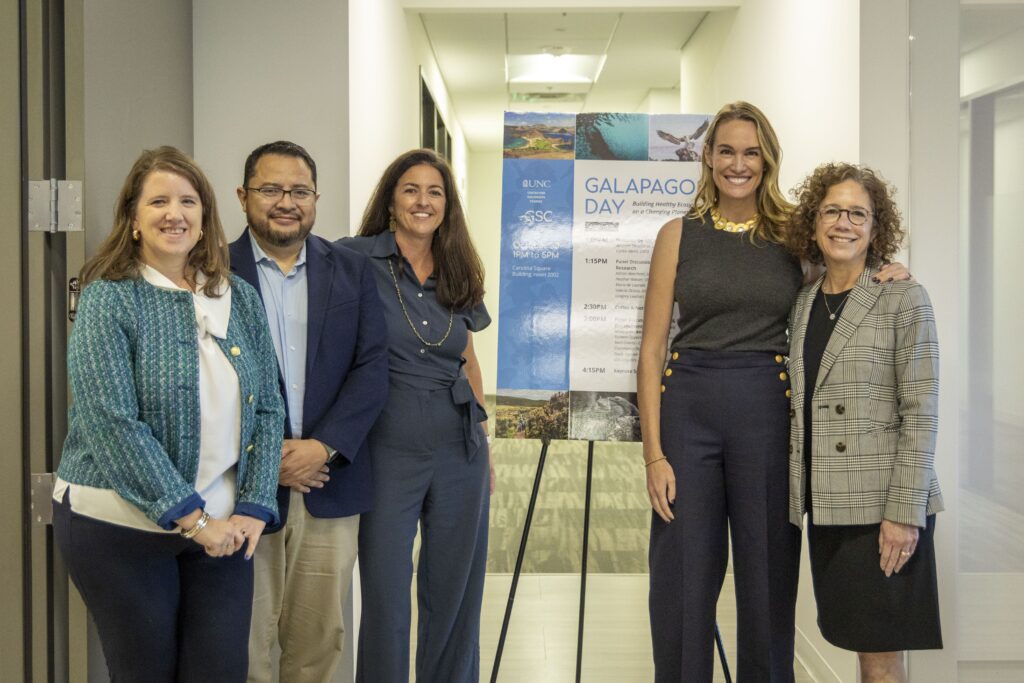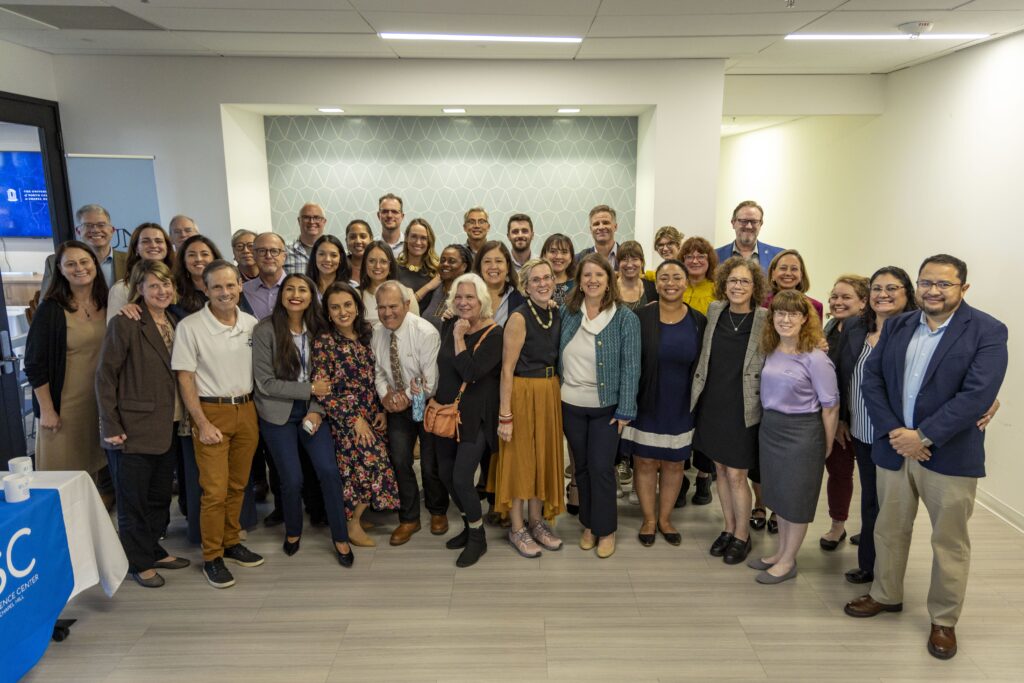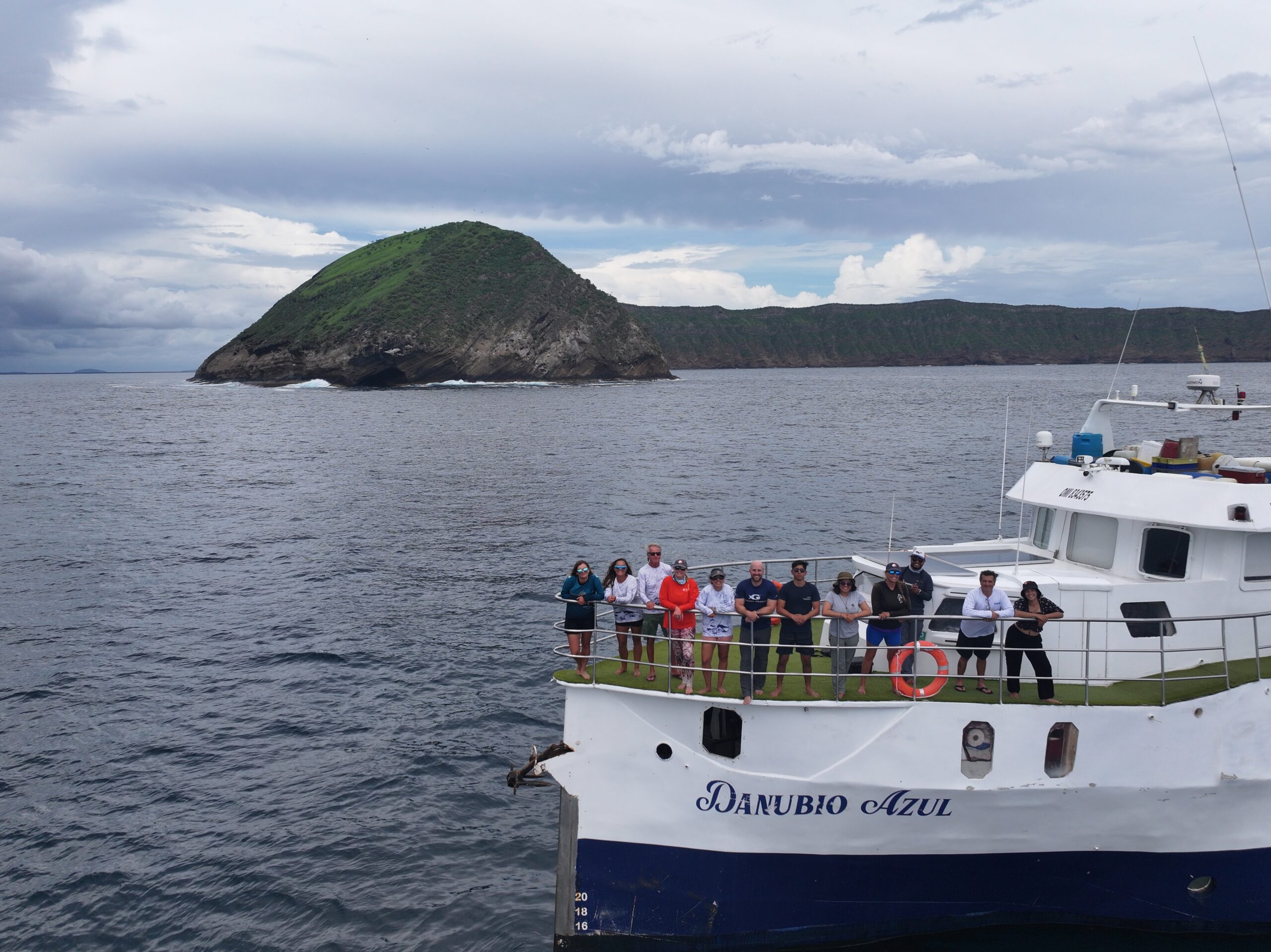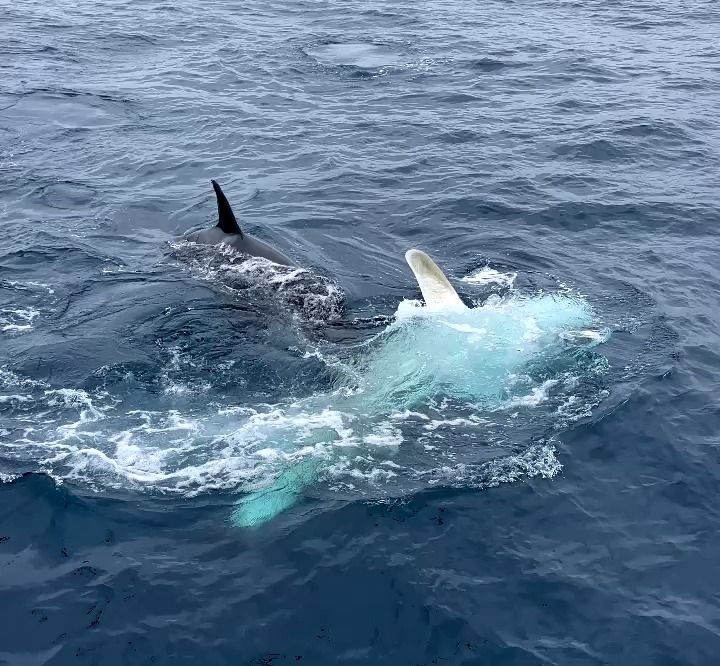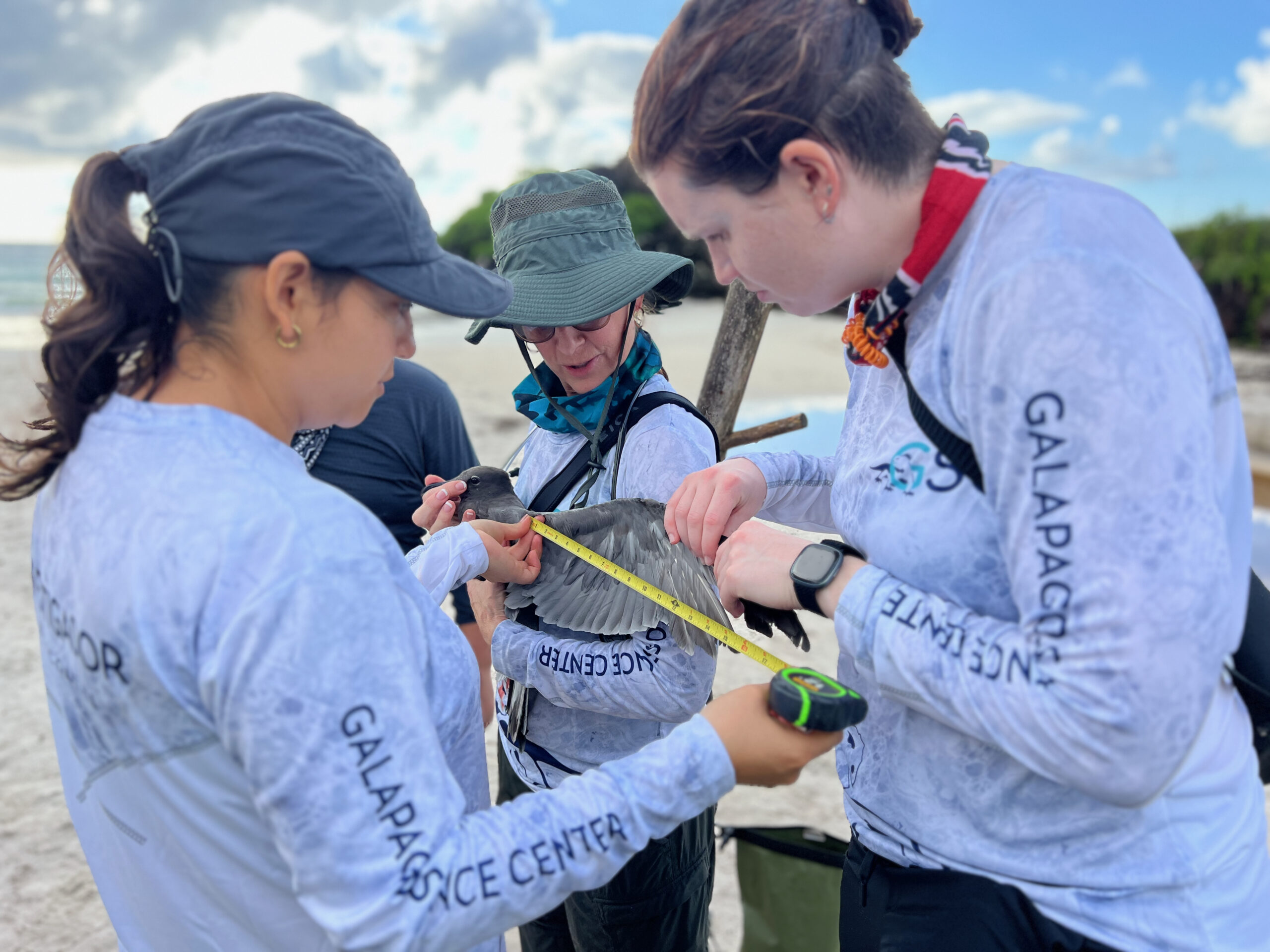UNC Center for Galapagos Studies and the Galapagos Science Center recently hosted its first Galapagos Day on UNC-Chapel Hill’s campus titled Galapagos Day: Building Healthy Ecosystems on a Changing Planet. This event successfully brought together global researchers, students, and staff from UNC-Chapel Hill (UNC), the Universidad San Francisco de Quito (USFQ), NC State University, and the Galapagos Science Center to share about their impactful work in Galapagos and relevant opportunities for collaboration, training, outreach, and student engagement moving forward.
Galapagos Day also featured UNC Hussman School of Journalism and Media graduate, oceans ambassador, author, and filmmaker, Ashlan Cousteau as the keynote speaker. Cousteau shared an inspiring message of hope for our planet alongside urgency, highlighting how the Galapagos is a microcosm of science, people, and the community that is hard to find anywhere else in the world, reiterating the importance of the ongoing work and mission of the Galapagos Science Center.
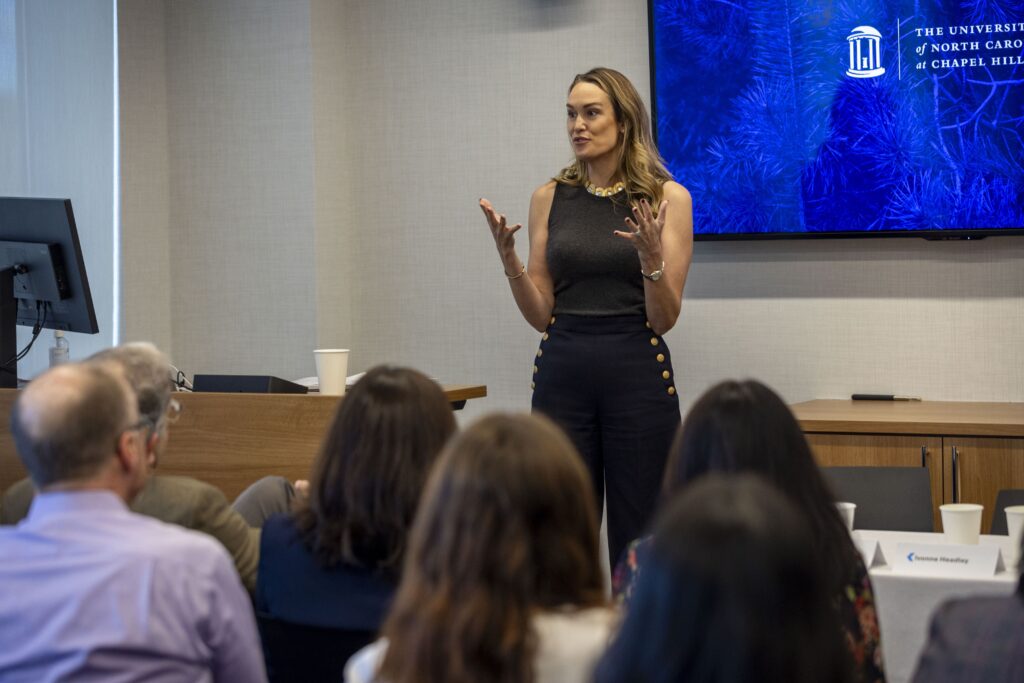
UNC Vice Chancellor for Research, Penny Gordon-Larsen kicked off Galapagos Day with a warm welcome and encouraged more UNC faculty to consider the Galapagos as a place to look deeper into pressing global challenges, before Galapagos Science Center Co-Directors, Amanda Thompson (UNC) and Carlos Mena (USFQ) set the stage for a productive afternoon of discussions.
In the first panel of the afternoon, the event attendees learnt about the interdisciplinary research being pursued in the Galapagos on topics such as marine ecosystems, invasive species and biodiversity conservation, water resource management, and wildlife conservation. Valeria Ochoa-Herrera, Professor of Environmental Engineering at USFQ, shared about her ongoing water research in Galapagos, which has limited freshwater sources yet heightened stress on water infrastructure. Through community and industry collaborations, Ochoa described two new projects in San Cristobal, Galapagos around rainwater harvesting and wastewater treatment as well as new sustainable urban drainage systems that are being implemented at the Galapagos Science Center.
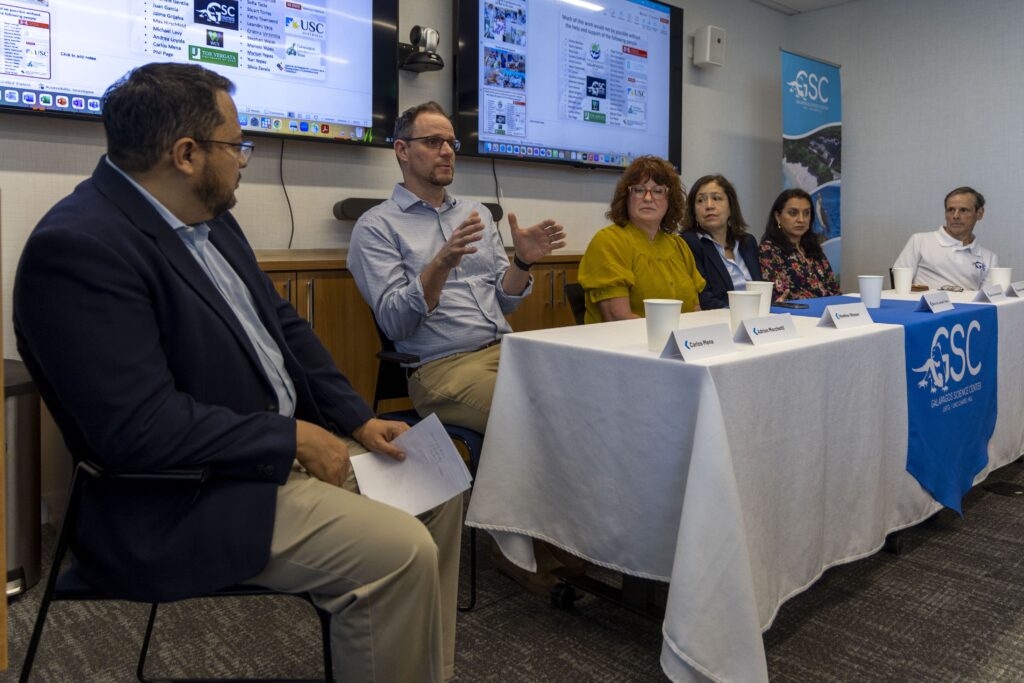
UNC Assistant Professor in Nutrition, Heather Wasser, provided insights she gleaned after returning from Galapagos this summer on a seed grant, where her team explored how to reduce the dual burden of child malnutrition in Galapagos. In the same panel, the audience heard from NC State Professor and wildlife veterinarian Greg Lewbart about his years of collaborative work on projects, leading to over 40 published papers to date, spanning health assessments of Galapagos wildlife, defining the shrinking marine iguana phenomenon, and quantifying microplastics effects on Galapagos wildlife.
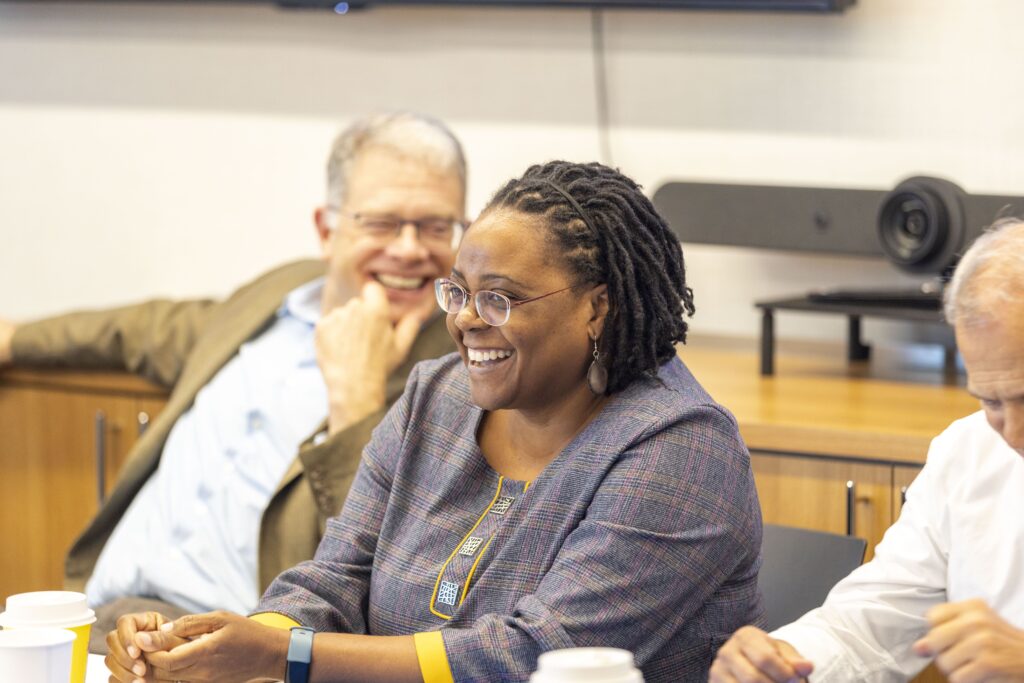
The next panel moved into sharing meaningful faculty and student engagement opportunities, where attendees heard an inspiring testimonial from UNC PhD student, Ivonne Headley. Headley spent the majority of her previous summer in the Galapagos, looking to better understand locally relevant barriers to healthy eating practices among families with young children, where she collaborated with the local hospital and even had the opportunity to give a prenatal class during her time on the Islands. Headley shared how the relationship the
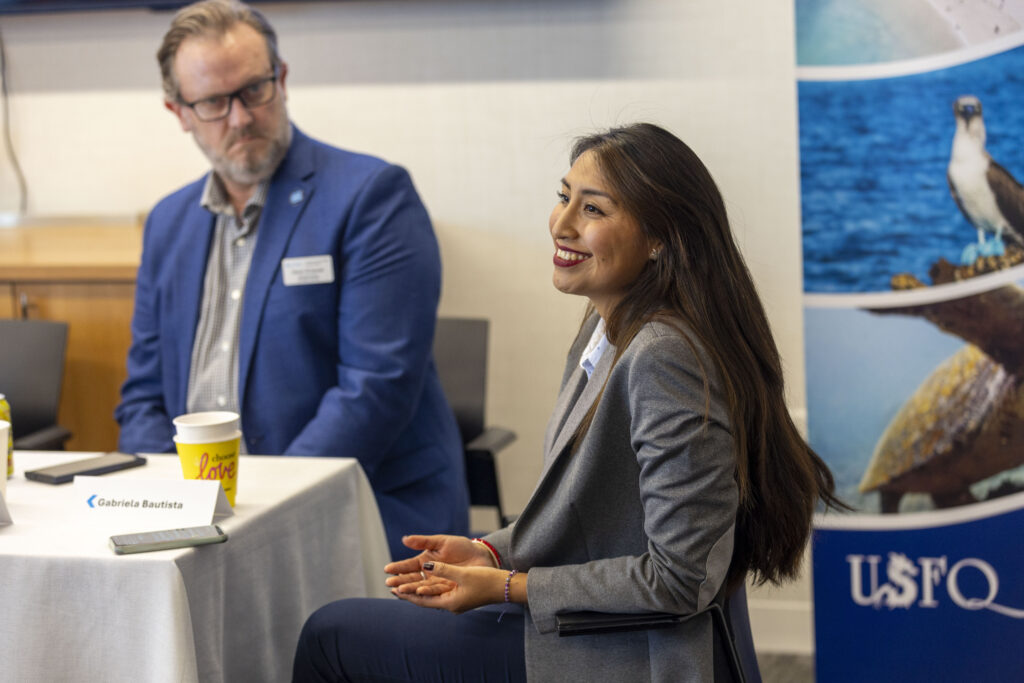
Jason Kinnear, UNC Associate Dean of Study Abroad, shared about the process for new faculty to propose and lead for-credit programs in Galapagos as well as involving students in research activities. Event attendees also heard from Gabriela Bautista, Research Coordinator at the Galapagos Science Center, about how the Center has supported over 140 research projects, over 600 researchers across the globe, and engaged with over 8000 community members through science and educational activities since its inception in 2011. Bautista stressed that the Galapagos Science Center not only provides access to a network of experts, but also an understanding of local regulation, links to the Galapagos National Park and the local community, and infrastructure that allows researchers to focus on conducting transformative science. Attendees were left with an understanding that the Galapagos Science Center is not merely a research facility, but a place that creates opportunities for immersive, hands-on learning that inspires future leaders in science and conservation.
After hearing from our impressive panels, Ashlan Cousteau reflected on the discussion and provided a message of hope. Cousteau did not shy away from acknowledging that our planet is deteriorating but emphasized that the ocean is our biggest solution and biggest ally, as well as the notion that nature is resilient. Cousteau said, “What everyone needs right now is hope. There is so much despair and climate anxiety out there and the best way to combat it is with hope and getting people involved – and Galapagos represents hope for students and families.” Our hope is that Galapagos Day provided a chance for more faculty, students, and strategic partners to imagine ways to get involved, to support our ongoing efforts in Galapagos, and to – together – continue to solve global and local challenges. In the words of Cousteau at the closing of her talk, “Galapagos is the hope.”
